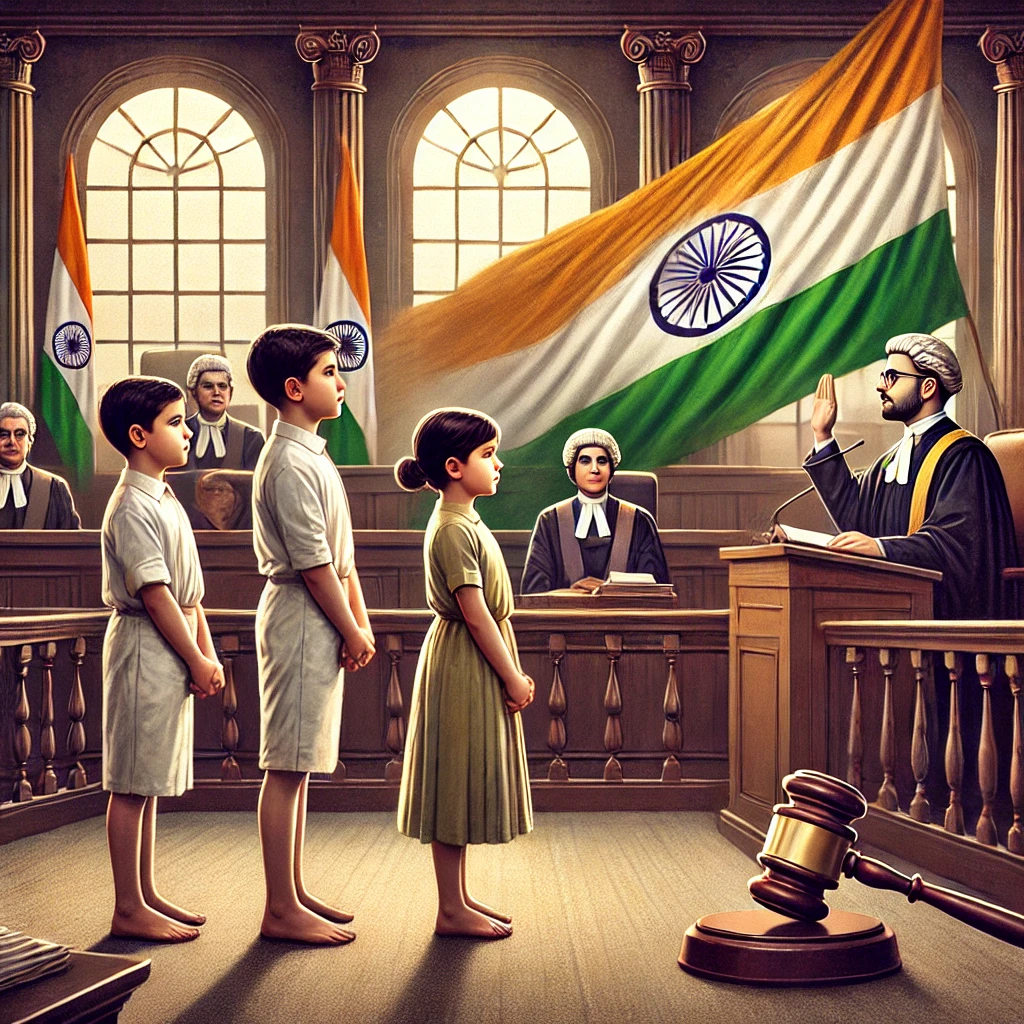Background:
- Three siblings—Bijoe, Binu, and Bindu Emmanuel—were expelled from a school in Kerala for not singing the national anthem (Jana Gana Mana) during the school assembly.
- The children, belonging to the Jehovah’s Witnesses faith, stood respectfully during the anthem but did not sing it, citing religious beliefs.
Key Issue:
- Whether the expulsion of the students for not singing the national anthem violated their fundamental rights under the Indian Constitution, specifically:
- Article 19(1)(a) – Freedom of speech and expression.
- Article 25(1) – Freedom of conscience and free profession, practice, and propagation of religion.
Arguments:
- State’s Argument: The State of Kerala contended that singing the national anthem was a fundamental duty and a sign of respect towards the nation.
- Petitioners’ Argument: The children argued that their faith did not permit them to sing the anthem, although they stood respectfully while it was being played.
Supreme Court’s Observations:
- The Court recognized the children’s right to freedom of speech and expression, which includes the freedom not to sing.
- It emphasized that the children’s respectful silence during the anthem indicated that they did not disrespect the national anthem.
- The Court also highlighted that Article 25 protects the freedom to practice one’s religion, and coercing the children to sing would violate this right.
Judgment:
- The Supreme Court ruled in favor of the Emmanuel siblings, holding that their expulsion violated their fundamental rights under Article 19(1)(a) and Article 25.
- It was stated that no constitutional law requires citizens to sing the national anthem; standing in respect suffices.
Key Takeaways:
- This case established that freedom of expression includes the freedom to remain silent.
- It reinforced the principle that personal beliefs and conscience should be respected, as long as they do not disturb public order.
- The judgment emphasized tolerance and respect for diverse beliefs, shaping the interpretation of religious freedom in India.
Impact:
- The decision is a landmark in upholding individual rights over forced conformity.
- It set a precedent for balancing national pride with personal beliefs, highlighting that true patriotism respects diversity and individual rights.
Conclusion:
- The Bijoe Emmanuel case is a reminder that the Indian Constitution protects the rights of individuals to express their beliefs freely, ensuring that faith and conscience are not compromised in the name of nationalism.

